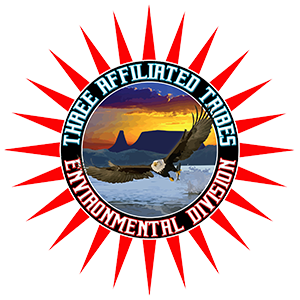GET INVOLVED
Q: Are there ways the public can assist you and if so, how?
A: Yes! We rely heavily on the publics input and observations. We encourage the continued support and calls from the public, they are our best source of leads to inspect.
During normal business hours, please call the main office number.
Our compliance officers are on duty 24/7 – 365 days a year.
| |
Main Office Number |
701-627-4569 |
|
| Edmund Baker |
Environmental Director |
701-421-6873 |
edumndbaker@mhanation.com |
| N. Scott Baker |
Section 106 Water Quality Coordinator |
701-421-8044 |
sbaker@mhanation.com |
| Curtis Seesequasis |
Brownfields Coordinator/Lead Compliance Officer |
701-421-9469 |
cseeseequasis@mhanation.com |
| Rob Fimbres |
Compliance Officer |
701-421-9631 |
rfimbres@mhanation.com |
| David Dobbs |
Compliance Officer |
701-421-2997 |
ddobbs@mhanation.com |
| Clement Baker, Jr. |
Compliance Officer |
701-421-9564 |
clembaker@mhanation.com |
Milton Beston |
Compliance Officer |
701-421-9103 |
mbeston@mhanation.com |
Chad Morsette |
Compliance Officer |
701-421-6567 |
cmorsette@mhanation.com |
| Bryant Waupoose |
Brownfields Technician/Data Entry |
701-421-9824 |
bwaupoose@mhanation.com |
| Alvina Clark |
Water Technician |
701-421-8313 |
aclark@mhanation.com |
BROWNFIELDS
If you know of any abandoned areas that may pose an environmental risk to the local community, please contact either Curt Seesequasis or Bryant Waupoose with details about the location. Photos, video and details about the site can be emailed to our addresses above.
COMPLIANCE
Oilfield filter "socks", also known as "FRAC SOCKS", are used to filter produced water at drilling sites. Produced water is a byproduct of oil and gas exploration and production.
Please report IMMEDIATELY these are a potential health risk. DO NOT touch or play with these!
It is better to report a potential issue than not report it at all. Frac socks often contain naturally occurring radioactive materials. (See article in Forbes Magazine)
Q: What types of sites should be called into your program?
A: Any suspicious vehicles or individuals dumping any solids or liquids anywhere within reservation boundaries. Any suspicious smells or liquid that may raise your concern. Pay attention to oily or chemical sheens or smells. Seasonally, for instance in the winter, if you see someone dumping water on the roadway please call us as this is a potential hazard if it freezes and could cause an accident. Open pit dump site such as household trash not disposed of properly, hazardous materials, car batteries, tires, white goods, barrels, and sealed containers, abandoned buildings which could contain such hazards as asbestos and lead paint.
WATER QUALITY
If you have a groundwater well, you could be eligible to participate in the Water Division's current study.
The Three Affiliated Tribe's Environmental Division is collaborating with the U.S. Geological Survey North Dakota Water Science Center and U. S. Environmental Protection Agency's (EPA) Region 8 Laboratory to monitor both surface water and groundwater quality. The objective is to determine if land use is impacting water quality on Tribal lands.
The U.S. EPA Region 8 Lab is running the analysis on all samples collected. Samples will be analyzed for pesticides, metals, volatile, semi-volatile organic compounds (s.a. BTEX and diesel range organics), and many other compounds. A full list of analytes are available here.
The data will be publicly available and used in TAT Environmental Division’s end of year report. In the future, the data may be used in technical journal articles that would be published. If you participate in the study, the results from samples collected on your property will be made available to you.
If you are interested in participating in the study, please contact our representative at the TAT Environmental Division:
N. Scott Baker, Section 106 Water Quality Coordinator
(701) 627-4569
sbaker@mhanation.com
|
